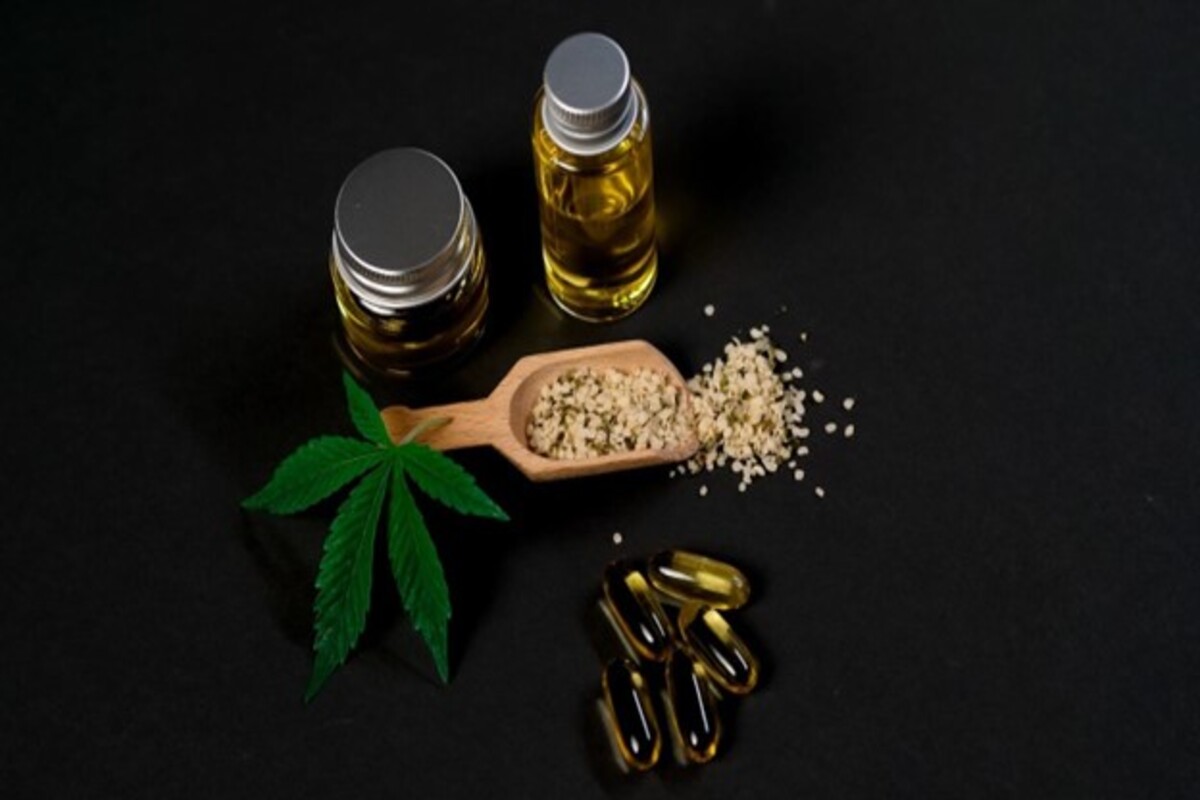THC-A, or tetrahydrocannabinolic acid, is a powerful cannabinoid that is gaining recognition for its potential therapeutic benefits. While often overshadowed by its more well-known counterpart, THC (tetrahydrocannabinol), THC-A offers unique properties that make it a valuable compound in the world of cannabis. In this article, we will explore what THC-A is, how it differs from THC, its benefits, how it works in the body, and much more. By the end, you will have a comprehensive understanding of THC-A and its potential.
What is THC-A and how does it differ from THC?
THC-A is the precursor to THC and is found in raw cannabis plants. Unlike THC, THC-A is non-psychoactive, meaning it does not produce the intoxicating effects commonly associated with cannabis use. When cannabis is heated, such as through smoking or vaporization, THC-A undergoes a process called decarboxylation, where it loses a carboxyl group and is converted into THC. This transformation is what makes THC-A psychoactive.
While THC is known for its euphoric high, THC-A offers a different set of effects. It is believed to have potent anti-inflammatory, neuroprotective, and antiemetic properties, making it a promising compound for various medical applications. Additionally, THC-A is known for its ability to enhance appetite, reduce nausea, and relieve muscle spasms. Its non-intoxicating nature also makes it a suitable option for those who wish to avoid the psychoactive effects of THC.
The Benefits of THC-A
Research into the benefits of THC-A is still in its early stages, but preliminary studies have shown promising results. One area where THC-A shows potential is in the treatment of chronic pain. Studies have found that THC-A may help reduce inflammation and modulate pain signals, providing relief for individuals suffering from conditions such as arthritis, fibromyalgia, and multiple sclerosis.
THC-A has also shown promise as an antiemetic, meaning it can help alleviate nausea and vomiting. This makes it beneficial for individuals undergoing chemotherapy or experiencing nausea due to other medical conditions. Additionally, THC-A may have neuroprotective properties, which could make it a valuable compound for the treatment of neurodegenerative diseases such as Alzheimer’s and Parkinson’s.
Furthermore, some studies have suggested that THC-A could have anti-cancer properties. While more research is needed, early findings indicate that THC-A may inhibit the growth and spread of cancer cells. This opens up the possibility of using THC-A as a complementary therapy alongside traditional cancer treatments.
How THC-A Works in the Body
To understand how THC-A works in the body, we must first look at the endocannabinoid system (ECS). The ECS is a complex network of receptors, enzymes, and endocannabinoids that helps regulate various physiological processes, including pain, mood, appetite, and inflammation.
When THC-A is ingested or applied topically, it interacts with the ECS by binding to cannabinoid receptors, primarily CB1 and CB2 receptors. This interaction triggers a cascade of physiological responses, leading to the various effects associated with THC-A. For example, when THC-A binds to CB1 receptors in the brain, it can help alleviate pain and induce relaxation. Meanwhile, activation of CB2 receptors in the immune system can reduce inflammation and modulate the immune response.
The exact mechanisms through which THC-A produces its effects are still being studied, but it is clear that it plays a significant role in the regulation of various bodily functions. By understanding how THC-A interacts with the ECS, researchers can develop targeted therapies that harness its potential for medicinal use.
THC-A vs CBD: Understanding the Differences
THC-A and CBD (cannabidiol) are two prominent cannabinoids found in cannabis, each with their own unique properties. While both compounds offer potential therapeutic benefits, there are some key differences between THC-A and CBD.
One of the main differences lies in their psychoactivity. THC-A, as mentioned earlier, is non-psychoactive in its raw form. It only becomes psychoactive when it is converted into THC through decarboxylation. On the other hand, CBD is non-psychoactive regardless of how it is consumed. This makes CBD a preferred option for individuals who want to experience the potential benefits of cannabis without the intoxicating effects.
Another difference is their legal status. While CBD has gained widespread acceptance and is legal in many countries and states, THC-A is subject to more restrictions due to its potential psychoactive properties. It is important to check the specific laws and regulations in your jurisdiction regarding the use and sale of THC A products.
The Legal Status of THC-A
The legal status of THC-A varies depending on where you are located. In some countries and states, THC-A is classified as a controlled substance and is subject to strict regulations. In other jurisdictions, it may be legal for medical use but require a prescription or authorization from a healthcare professional. It is crucial to familiarize yourself with the laws in your area to ensure compliance and avoid any legal issues.
How to Use THC-A?
There are several methods of consuming THC A For Sale, each with its own advantages and considerations. One common method is to vaporize THC-A using a specialized vaporizer. Vaporization allows for precise temperature control, ensuring that THC-A is activated without burning the plant material. This method is preferred by those who want to avoid the potential health risks associated with smoking.
Another option is to incorporate THC-A into edibles or beverages. By infusing THC-A into oils or butter, you can create a wide range of culinary delights that offer both taste and therapeutic benefits. It is important to note that when using THC-A in cooking, it should be decarboxylated beforehand to activate its full potential.
Topical applications are another way to use THC-A. Lotions, balms, and creams infused with THC-A can be applied directly to the skin, providing localized relief for conditions such as arthritis or muscle soreness. This method allows for targeted application and avoids the potential psychoactive effects that come with ingestion.
Where to Buy THC-A Products
If you are interested in trying THC-A products, it is important to ensure that you purchase them from reputable sources. Look for licensed dispensaries or online retailers that adhere to strict quality control standards. It is advisable to read reviews and check for third-party lab testing to ensure the purity and potency of the products. You can explore ELYXR to find out a wide range of THCA and other products that are high-quality and lab tested.
Potential Side Effects of THC-A
While THC-A is generally well-tolerated, it may still produce some side effects, especially when consumed in large quantities. These side effects can include dizziness, dry mouth, red eyes, and increased heart rate. It is crucial to start with a low dose and gradually increase as needed to minimize the risk of adverse effects. If you experience any discomfort or unusual symptoms, it is recommended to consult with a healthcare professional.
Conclusion: Exploring the Potential of THC-A
In conclusion, THC-A is a fascinating cannabinoid with a range of potential therapeutic benefits. From its anti-inflammatory properties to its potential as an antiemetic and neuroprotective agent, THC-A holds promise in the world of cannabis medicine. However, more research is needed to fully understand its mechanisms of action and unlock its full potential.
If you are considering using THC-A, it is essential to consult with a healthcare professional who can provide guidance based on your specific needs and medical history. Additionally, it is crucial to stay informed about the legal status of THC-A in your area and purchase products from reputable sources.
By exploring the potential of THC-A, we can further advance our understanding of cannabis and harness its power for the benefit of human health and well-being.
If you are interested in exploring the potential benefits of THC-A, consult with a healthcare professional and seek out reputable sources for THC-A products. Remember to start with a low dose and monitor your body’s response. Stay informed about the legal status of THC-A in your area and stay up to date with the latest research on this fascinating cannabinoid.





